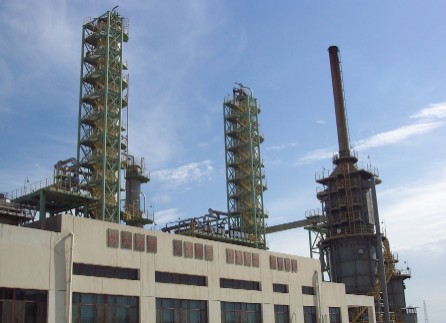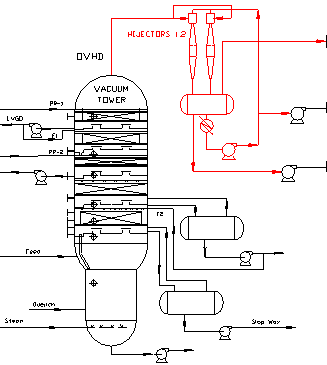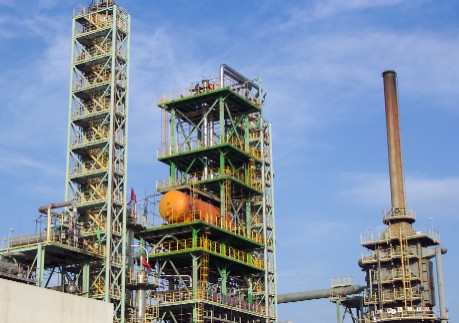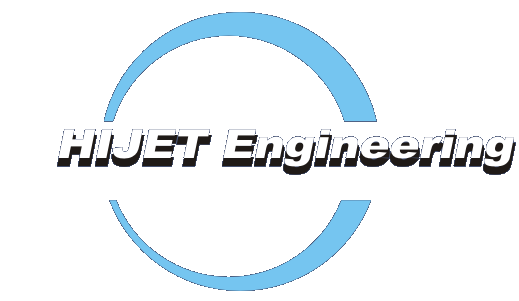

Applications :: Vacuum Applications
Case study 5: Vacuum Distillation Unit at SINOPEC Tahe Refinery, China
|

SINOPEC Tahe Refinery, 2004
|
SINOPEC Tahe Refinery
Application: Vacuum Distillation
System: VDU vacuum system
Location: SINOPEC Tahe Refinery, China
INTRODUCTION
In vacuum towers steam ejectors are notoriously sensitive to variations in steam quality and seasonal fluctuations in cooling water temperature. This can make operation unstable and increase the need for maintenance. Such factors have no impact on Hijet vacuum systems. The opportunity to eliminate contaminated steam and reduce energy consumption is the use of the Hijector™ - a liquid jet ejector of proprietary design.
The unique Hijet vacuum system was commissioned in December 2005 at the SINOPEC Tahe Refinery, China.
|
THE CHALLENGE
Tahe refinery faced continuous problems with their existing steam ejector system that required regular maintenance due to corrosion problems. An additional challenge was to reduce the energy consumption along with eliminating sour water production and lowering green house emissions.
|

Hijet vacuum system diagramm |
HIJET SOLUTION
Hijet vacuum system was chosen as it has a proved track record for its high reliability and for being maintenance free.
The Hijet vacuum system at Tahe refinery utilizes two parallel single stage Hijectors™ - liquid jet ejectors of proprietary design. Using LVGO as the motive liquid, the system is capable of pulling vacuum to 15mm Hg at the top of the column.
The system also includes separator, centrifugal pump and cooler.
|
|
|
CONCLUSIONS |

SINOPEC Tahe Refinery with Hijet system, 2005 |
 |
Hijet vacuum systems currently represent the best option for minimizing the environmental impact and complying with the IPPC directive and the Kyoto protocols. |
 |
Refineries and chemical plants subjected to stringent environmental legislation will benefit the most from this technology. |
|
SYSTEM BENEFITS
- Increased reliability.
- Easy start up and shutdown.
- No motive steam – reduced emissions.
- No sour water production – reduced emissions.
- Reduced operational expense in comparison with the traditional steam ejector system while increasing reliability.
|
Estimated benefits of using of the Hijet vacuum system :
| Parameter | Steam Ejector three-stage | Hijet single-stage |
|---|
| Vacuum column Pressure | 40 mm Hg | 40 mm Hg |
| Gas Flow from vacuum column | 1,150 kg/h | 1,150 kg/h |
| Motive steam consumption | 7.0 tons/h | 0 tons/h |
| Cooling water consumption | 420 m3/h | 100 m3/h |
| Electric power Requirement | 0 kW | 1,000 kW |
| Operation time (355days / year) | 8,520 h | 8,520 h |
| HP steam consumption / year | 59,640 t | 0 t |
| CW consumption / year | 3,578,400 m3 | 852,000 m3 |
| Power consumption /year | 0 | 8,520,000 kWh |
| Cost of HP steam / year | $656,040 | $0 |
| Cost of cooling water / year | $107,352 | $25,560 |
| Cost of electric power / year | $0 | $511,200 |
| Total cost of energy / year | $763,392 | $536,760 |
| Minimum yearly direct saving | 0 | $226,632 |
|
|
|
© 1995-2025 Hijet Engineering Ltd |||||


